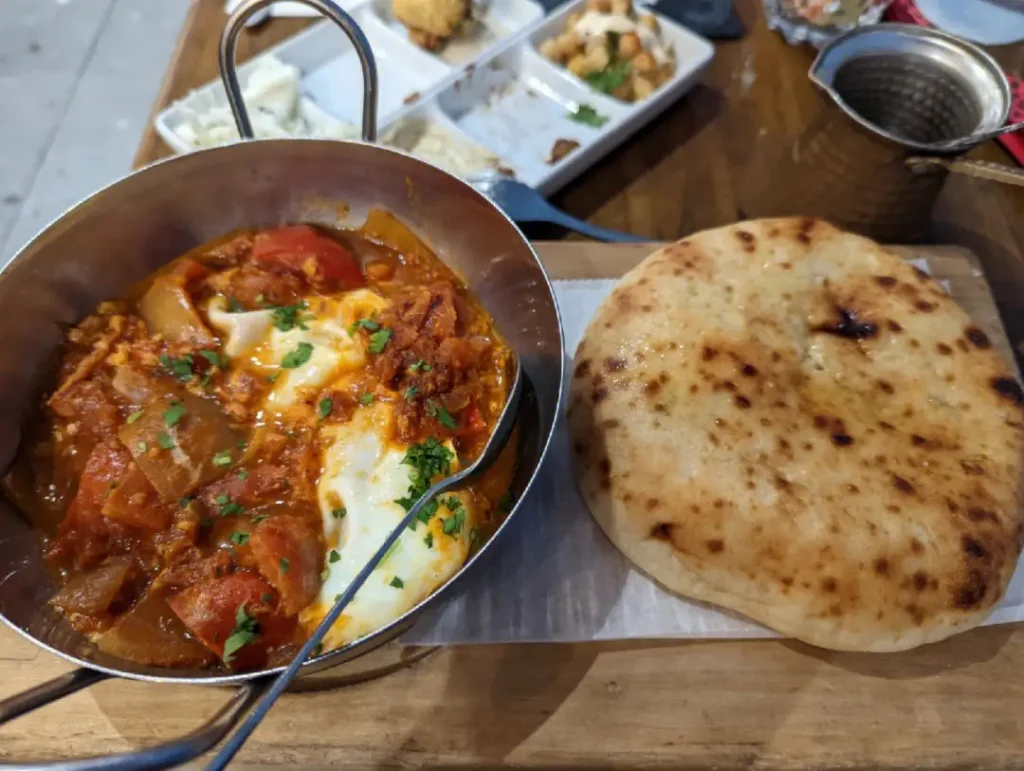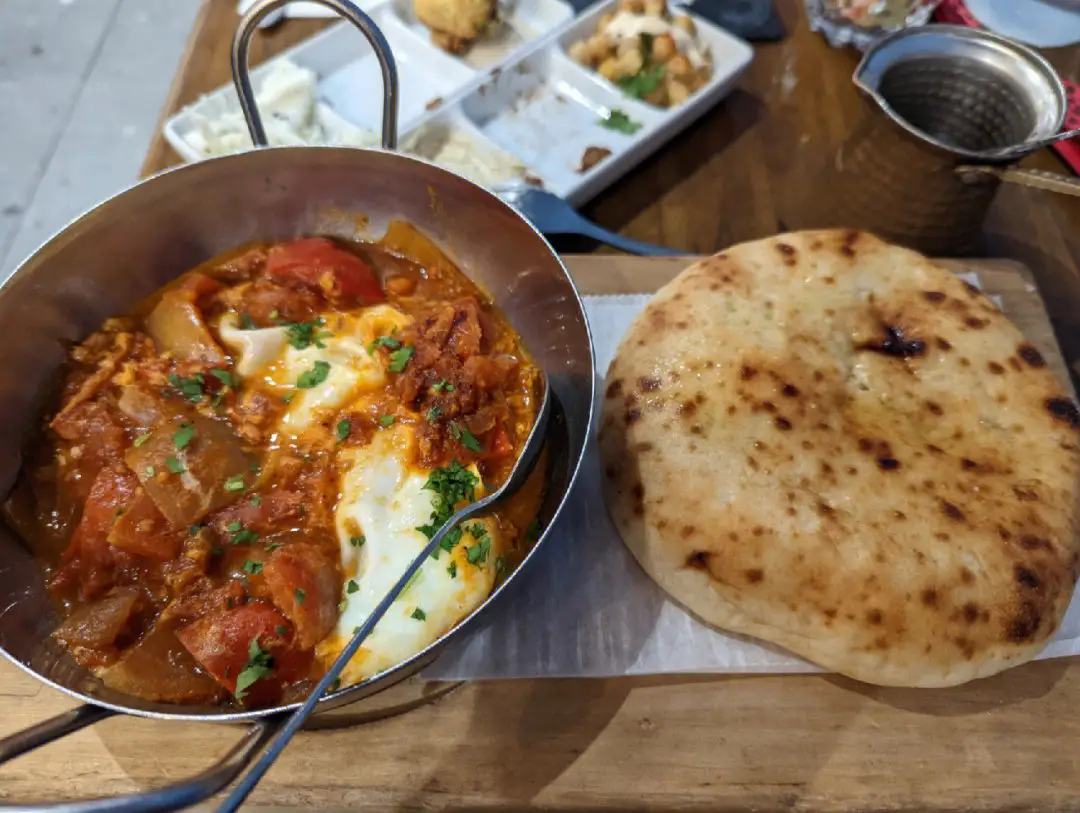The cuisine of Israel is a diverse blend of culinary influences from the various groups that have settled in the region over time, as well as the native Levantine and Mediterranean food traditions. While there are many similarities with other Middle Eastern cuisines, Israeli cuisine has some unique features that set it apart:
- Immigration Influences: Israel’s modern culinary landscape has been shaped by the waves of Jewish immigrants from Europe, North Africa, and the Middle East, each bringing their own food traditions and adapting them to local ingredients. This has resulted in a diverse range of dishes and flavors that may not be found in other Middle Eastern cuisines.
- Kosher Dietary Laws: Jewish dietary laws (kashrut) have a significant impact on Israeli cuisine. These laws prohibit the consumption of certain foods, such as pork and shellfish, and require the separation of meat and dairy products. As a result, many traditional Israeli dishes have been adapted to comply with these restrictions, leading to some unique culinary creations.
- Vegetarian and Vegan-Friendly: Israeli cuisine has a strong focus on fresh vegetables, fruits, and legumes, making it relatively vegetarian and vegan-friendly compared to other Middle Eastern cuisines. Dishes like falafel, hummus, baba ganoush, and various salads are common and can easily be adapted to suit different dietary preferences.
- Popular Dishes: Some dishes and food items that are particularly popular in Israel and may not be as common in other Middle Eastern cuisines include:
- Shakshuka: A dish made of poached eggs in a spicy tomato sauce, often flavored with cumin, paprika, and other spices.
- Israeli Salad: A simple salad made of finely chopped cucumbers, tomatoes, onions, and bell peppers, dressed with olive oil and lemon juice.
- Sabich: A sandwich filled with fried eggplant, hard-boiled eggs, Israeli salad, hummus, and tahini, typically served in a pita.
- Burekas: Flaky pastries filled with a variety of ingredients, such as cheese, potato, spinach, or mushrooms.
- Hamin (Cholent): A slow-cooked stew made with meat, potatoes, beans, and barley, traditionally prepared for Shabbat.
- Street Food Culture: Israel has a thriving street food culture, with dishes like falafel, shawarma, and sabich available at food stalls and markets throughout the country. This emphasis on casual, on-the-go eating is a distinctive feature of Israeli cuisine.
Overall, Israeli cuisine is a rich tapestry of flavors and influences that sets it apart from other Middle Eastern cuisines while still retaining a strong connection to its regional roots.

- Dairy Products: Dairy products, especially white cheese varieties like Tzfatit, Labneh, and Bulgarian cheese, play a significant role in Israeli cuisine. These cheeses are often used in salads, sandwiches, pastries, and as a part of breakfast spreads.
- Breakfast Culture: Israel has a unique breakfast culture, with dishes like shakshuka, Israeli salad, and various dairy products often served alongside bread, olives, and fresh fruit. This focus on fresh, light breakfast options is distinct from some other Middle Eastern countries, which may emphasize heavier, meat-based breakfast dishes.
- Bread: While pita bread is common throughout the Middle East, Israeli cuisine also features other bread types such as challah, a braided bread traditionally eaten on Shabbat, and Jerusalem bagels, which are larger and softer than their American counterparts.
- Use of Fresh Herbs: Israeli cuisine places a strong emphasis on using fresh herbs like parsley, cilantro, dill, and mint to flavor dishes. This is a shared characteristic with other Mediterranean and Middle Eastern cuisines but is particularly prominent in Israeli food.
- Fusion and Modern Interpretations: Israeli cuisine has embraced fusion and modern culinary techniques, with many chefs experimenting with traditional ingredients and dishes to create new, innovative offerings. This has led to the development of a contemporary Israeli food scene that incorporates global flavors and trends while still retaining its cultural roots.
In summary, while Israeli cuisine shares many similarities with other Middle Eastern cuisines due to its geographical location and historical connections, it stands out due to its unique blend of culinary influences, adherence to Jewish dietary laws, emphasis on fresh produce and vegetarian options, thriving street food culture, and fusion of traditional and modern culinary techniques.
